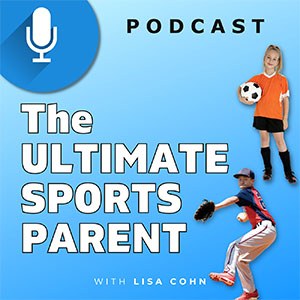Sports Injuries in Young Athlete

Many hours each week in Joe Dinoffer’s family focused on their daughter’s tennis; all tennis families have been there.
Like many, Joe’s family also decided to let their daughter stay at home and attend an accredited high school distance learning program. But after adjusted a sizeable part of their daily lives around her tennis, everything changed suddenly. Their daughter had to drop out of tennis due to an injury.
Should parents plan for the possibility of such injuries? Or should they, like Dinoffer, invest dramatically in their child’s dreams and just deal with injuries if they arise?
These are fascinating questions that arose when we recently interviewed Dinoffer, president of On-court Off-court, for our Ultimate Sports Parent Radio podcast series.
First of all, it’s critical for sports parents to understand the psychological effects of injuries on sports kids—especially those, like Dinoffer’s daughter, who was often training twice a day and schooling from her home.
Often, athletes, especially higher level athletes like Dinoffer’s daughter, gain self-esteem from playing sports. But their self-esteem often is too tied up into playing sports. If they have to stop playing due to an injury, they suffer psychologically. They ask questions about who they are.
The Mental Toll of an Injury
What’s more, they’re afraid that they won’t be able to return to sports. They worry that if they do return, they won’t be able to play at the same level. And of course, their confidence takes a hit.
It’s important for sports kids to think of themselves as more than athletes. They shouldn’t think of themselves as being only as good as their successes in sports. They need to separate their self-esteem from their success in sports. You can help them do this by talking to them about their strengths, passions and interests outside of sports and reminding them that they have other interests and talents.
In addition, sports parents should be very careful about giving their kids the message that they’re only as “good” as their successes in sports. If you only praise them when they do well in sports, you’re likely giving them the idea that they’re only as good as their successes.
Want to learn more about how to be the best possible sports parents, and make sure sports boost your kids’ self-esteem and helps them learn life lessons?
To listen to the first half of this interview, use the player below:
Related Articles on Kids’ Mental Game:
- Parents: Helping Sports Kids Return to Sports After Injury
- Helping Sports Kids Build a Growth Mindset
- Help Sports Kids Face Unexpected Challenges
*Subscribe to The Sports Psychology Podcast on iTunes
*Subscribe to The Sports Psychology Podcast on Spotify
Improve Your Mental Game From Anywhere In The World

We’re certain that, as a parent, you want to help your child develop confidence and discipline in sports and life. And as a sports parent, you’d love for your children to reach their potential in sports. But encouraging your child to strive for greatness without pressuring them can be a challenge.
You can get expert mental coaching with us from anywhere. Meet with us via Zoom, Skype, FaceTime or phone call. With today’s video technology, we are able to connect with athletes and coaches all over the globe.
Call Us Today to Schedule Your Free 15-Minute Session.
Find Out How Your Athlete Can Benefit From One-on-One Mental Coaching!

My son who is a junior in high school is being treated badly by his high school basketball coach and when my son even tries to talk to on many occassions the coach ignores him. My son is not perfect but he is a great kid and is the best player on the team which makes this even more unusual. I have brought this up to principal and AD and it seems they are afraid of this coach. Type of coach that says the right things when many people are around but then treats his players badly but really has hurt my son mentally. The coach even told the AD my son was a bad team mate and that is so false it is not even funny(slander). He actually is great friends with them and their families. I really have tried every angle to make things better but sending him to another school because of this coach is not an option because the wpial he plays in would make him ineligible. So what can I do please help!
Get some solid evidence on the coach’s behavior. Video is always good. It’s amazing how much power coaches have at school. We’ve seen this play out in the media with Penn State recently. Then coaches start to think they are god and can do anything they want. Playing favorites is not good. Get him a book by John Wooden, maybe he can pick up some tips from the best.
very good put up, i definitely love this web site, keep on it